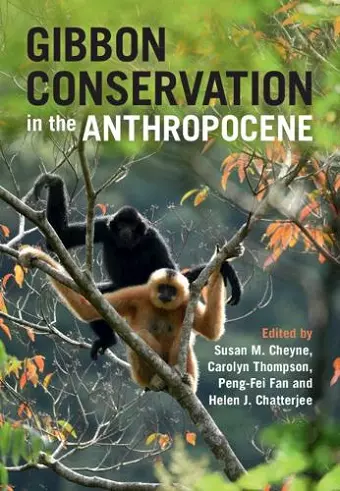Gibbon Conservation in the Anthropocene
Carolyn Thompson editor Helen J Chatterjee editor Susan M Cheyne editor Peng-Fei Fan editor
Format:Hardback
Publisher:Cambridge University Press
Published:20th Apr '23
Currently unavailable, and unfortunately no date known when it will be back

This volume brings together current research and practice on gibbon conservation, ecology, taxonomy and phylogenetics.
Gibbons are the most speciose of the apes. Despite being highly threatened, they receive less research and conservation attention compared to the great apes. This book presents cutting-edge research and conservation actions for hylobatids aimed at researchers, students and conservation practitioners within primatology and conservation ecology.Hylobatids (gibbons and siamangs) are the smallest of the apes distinguished by their coordinated duets, territorial songs, arm-swinging locomotion, and small family group sizes. Although they are the most speciose of the apes boasting twenty species living in eleven countries, ninety-five percent are critically endangered or endangered according to the IUCN's Red List of Threatened Species. Despite this, gibbons are often referred to as being 'forgotten' in the shadow of their great ape cousins because comparably they receive less research, funding and conservation attention. This is only the third book since the 1980s devoted to gibbons, and presents cutting-edge research covering a wide variety of topics including hylobatid ecology, conservation, phylogenetics and taxonomy. Written by gibbon researchers and practitioners from across the world, the book discusses conservation challenges in the Anthropocene and presents practice-based approaches and strategies to save these singing, swinging apes from extinction.
'An essential contribution to primate conservation literature. It reframes the role of gibbons within global conservation priorities and provides both conceptual frameworks and practical strategies for addressing urgent challenges. For researchers, conservation practitioners, and graduate students, this volume stands as a powerful call for more inclusive, data-driven, and socially responsive approaches to primate conservation.' Mary Katherine Gonder, The Quarterly Review of Biology
ISBN: 9781108479417
Dimensions: 250mm x 176mm x 23mm
Weight: 760g
348 pages